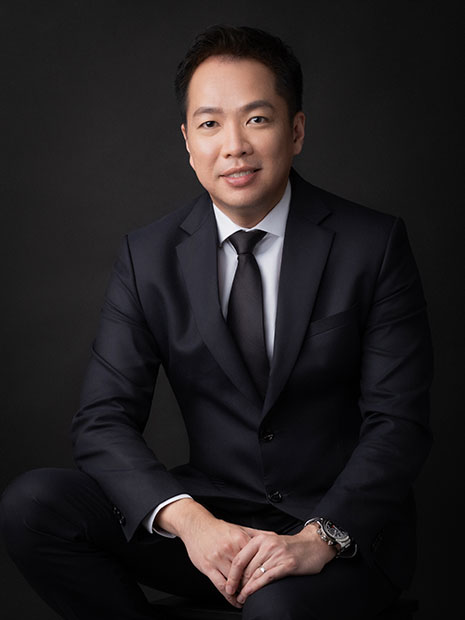Getting a Personal Protection Order
7.10.2022If you find yourself in the unfortunate position of being a victim of family violence, what can you do about it?
In Singapore, there are several types of protection you may apply for to protect yourself from an abusive family member. According to the Women’s Charter, a Personal Protection Order (PPO) can be applied for by a family member, or on behalf of another family member (perhaps a minor or an incapacitated person) against an abuser. In very serious cases, the Court might even grant a Domestic Exclusion Order (DEO) – excluding a family member from home.
Who is a family member?
In relation to a person in this context, ‘family member’ means:
- The person’s spouse or former spouse;
- The person’s child, including adopted children and step-children;
- The person’s mother or father;
- The person’s mother-in-law or father-in-law;
- The person’s brother or sister;
- Any other relative of the person (or incapacitated person) who the Court believes should, under the circumstances, be classed as a member of the person’s family.
What does ‘family violence’ mean?
The commission of any of the following acts will be classed as family violence:
- To willfully or knowingly place, or attempt to place, a family member in fear of hurt;
- To cause hurt to a family member by an act which is known (or ought to have been known) to result in hurt;
- To wrongfully confine or restrain a family member against their will; or
- To cause continual harassment with intent to cause anguish (or in the knowledge that it would be likely to cause anguish) to a family member.
Note that family violence does not include any lawful force needed in self-defence, or by way of correction of a child under the age of 21 years.
What do I need to prove?
You must prove to the Court that, on the balance of probabilities, family violence has been (or is likely to be) committed against a family member, and that it is necessary for the family member’s protection that a protection order is made so that the person to whom it applies is restrained from using violence against that family member.
What are the steps to getting a Personal Protection Order (PPO) / Expedited Order (EO) / Domestic Exclusion Order (DEO)?
Filing a complaint:
- First, you must file a complaint in the Family Justice Courts or one of the Family Violence Specialist Centres. It is advisable that you submit your application online through iFAMS before coming in person, as this shortens the initial process.
- When you visit in person, a Court Family Specialist will counsel you and provide you with the necessary information to ensure your safety. You will then be requested to appear before a Judge, who will ask you some questions and consider your application. You must swear or affirm the contents of the application.
- Assuming everything is correct, the Judge will issue a summons to the alleged abuser, asking for their presence, at a future date, in Court. At this point, the Court might also issue an Expedited Order (EO) if it considers that there is imminent danger of family violence being carried out and that the order is necessary for your protection, pending the case hearing.
- The summons will be served by the Court on the alleged abuser. A nominal sum of $1.00 should be paid.
Court process (first day)
- You will be asked to attend court on the same date as the alleged abuser (now called a Respondent). The Respondent will be informed of the contents of your complaint by an officer of the Court. If he or she consents to your application, a PPO can be issued on the same date.
- In the event that the Respondent does not consent to your complaint, the Court will normally direct parties to attend counselling with a Court Family Specialist to see if a resolution can be found – this will usually happen on the same day.
- If a resolution is not reached through counselling, parties will then be asked to appear in open Court (Court 1) before a judge. Any lawyers you have engaged will also appear with you.
- The Court will ask both parties whether matters are still outstanding – if they are, then the Court will direct the parties to prepare for a trial. This includes preparing documents/statements and any witnesses. A return date will also be specified by the Court for both parties to return, prepared to exchange what has been directed. If you have an Expedited Order, this will also be extended to the next Court session.
Preparation for Trial
- At the next Court session, the Court will want both parties to have complied with the directions given – so if either party is unsure how to prepare, they should get legal representation. The process usually involves preparing substantial documents, statements and witness lists. A lawyer will be able to assist you in drafting these documents and also explaining which witnesses may be relevant, and which are not.
- The parties and their lawyers (if they have legal representation) will then attend the next Court session. Your lawyer might request a reply to the other parties’ affidavit in some cases if they deem it necessary. They may also ask for an adjournment if there is a delay in providing any of the documents, for example, a medical report. If more Court sessions are scheduled, your lawyer may request that your attendance is waived, meaning you don’t have to attend Court again, until the date of the trial.
- If the Judge is satisfied that parties are prepared for trial and have all documents/statements and witnesses, then the Court will fix the case to be heard by another Judge. At this point, parties should notify the Court if they or any of their witnesses will need interpretation at the trial. It is this Judge who will decide if the PPO/DEO application is successful.
Trial
- Depending on the number of witnesses giving evidence in the case, the matter is usually fixed for a ½ day or 1-day trial.
- Each party and their witnesses will take the witness stand, and – together with their documents – will swear or affirm their evidence. Then the other side will cross-examine them on their evidence, as will the Judge if they feel clarification is needed. This can be an arduous process lasting some time as each party will try to prove their own case (either to obtain a PPO/DEO or to defend the application).
- Following the cross-examination, the parties shall make their arguments to the Court with regard to whether the application should be granted.
- The cross-examination and arguments to the Court will be conducted by the parties’ lawyers (if they have legal representation) as they will be familiar with the conditions required in law to obtain or defend a PPO/DEO.
- Then the Court will make its decision on the application. Unless either party wants to appeal the decision within 14 days of the Order, the matter is now concluded.
- If a PPO has been granted, the protection will last until it is cancelled.
What happens if either party is absent from Court?
In the event that either party does not attend Court on a key date e.g. mentions date, date for counselling session, trial date:
- An applicant who is absent will have their application struck out;
- A respondent who is absent will have an arrest warrant issued against them.
What happens if I breach the PPO / EO / DEO?
A breach of a PPO/EO/DEO will result in a criminal investigation which could lead to criminal charges. A person who breaches such an order can be fined by the criminal courts or even imprisoned, depending on the seriousness of the breach.
Why should I consider hiring a lawyer for these proceedings?
- As we have seen above, this process can be arduous and tedious, as many documents and statements of evidence need to be prepared, in order to prove or disprove the application.
- You will need to attend open Court, and for some this is a frightening experience.
- The trial process may be daunting for some, as you will need to take the stand and be examined and cross-examined by the other side and, perhaps, the judge. This can be especially scary if the other side is represented by lawyers.
Remember, a lawyer who is familiar with this type of case with hold your hand and guide you through this, as well as being on hand to draft documents for you, point you in the right direction, prepare you in general for the hearing, and also speak on your behalf in Court.



